Our Rights and Duties - 2 Class 4 Worksheet SST
Q1: Correct and Rewrite the Following Statements.
(i) "The right to equality means that all citizens are equal before the law."
Ans: The right to equality means that all citizens are treated equally before the law, irrespective of their backgrounds.
(ii) "The right against exploitation ensures that poor people are not made to work without pay."
Ans: The right against exploitation ensures that impoverished individuals are not subjected to unpaid labor or unfair treatment.
(iii) "Exploitation means to treat someone unfairly in order to get some benefit."
Ans: Exploitation refers to treating someone unjustly with the intention of gaining an advantage or benefit.
(iv) "The Constitution of India expects the citizens to perform certain duties towards the country."
Ans: The Constitution of India mandates that citizens fulfill specific responsibilities for the well-being and progress of the nation.
(v) "The Directive Principles listed in our Constitution were adopted from the Constitution of Ireland."
Ans: The Directive Principles listed in our Constitution were borrowed from the Constitution of Ireland to guide the government's efforts in ensuring societal welfare.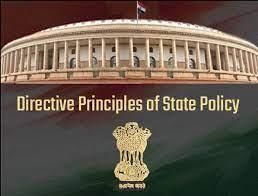
Q2: Write Any Two Differences Between the Following.
(i) Fundamental Rights and Directive Principles
Ans:
- Difference 1: Nature: Fundamental Rights are those rights that are legally enforceable and are justiciable, meaning citizens can approach the court if these rights are violated by the government or any other entity. Directive Principles, on the other hand, are non-justiciable, which means citizens cannot directly go to court to seek their enforcement. They provide guiding principles for the government's policies but are not subject to immediate legal action.
- Difference 2: Enforceability: Fundamental Rights hold immediate enforceability and can be invoked to protect an individual's rights against any violation. They take precedence over Directive Principles. In contrast, Directive Principles are aspirational in nature and offer broad guidelines for the government's actions in ensuring social, economic, and political justice. However, due to practical constraints, the government has the flexibility to implement them progressively.
(ii) Right to Equality and Right against Exploitation
Ans:
- Difference 1: Scope: The Right to Equality ensures that all citizens, irrespective of their religion, caste, race, sex, or place of birth, are treated as equals before the law. It extends to various aspects of life, including laws, policies, and social practices. The Right against Exploitation, on the other hand, specifically addresses issues related to the unfair treatment of individuals and exploitation, such as forced labor and child labor.
- Difference 2: Focus: The Right to Equality aims to eliminate discrimination and promote equal treatment of all citizens under the law. It emphasizes leveling the playing field and eradicating any biases. The Right against Exploitation, however, has a narrower focus on protecting vulnerable sections of society from exploitation, ensuring that individuals, especially those from disadvantaged backgrounds, are not subjected to unfair or unjust treatment.
Q3: Name the Following.
(i) The day on which the Indian Constitution came into effect.
Ans: Republic Day (January 26, 1950)
India's Constitution came into effect on January 26, 1950, which is celebrated annually as Republic Day. On this day, India formally adopted the Constitution, marking the country's transition to a republic and the beginning of a new era of governance.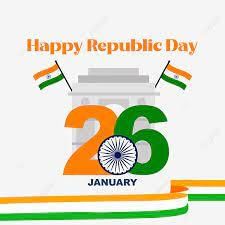
(ii) The Fundamental Right that guarantees freedom of religion.
Ans: Freedom of Religion (Article 25-28)
The Indian Constitution guarantees freedom of religion as a Fundamental Right under Articles 25 to 28. These articles ensure that every citizen has the right to profess, practice, and propagate their religion of choice without interference from the state.
(iii) The person known as the architect of the Indian Constitution.
Ans: Dr. B. R. Ambedkar
Dr. Bhimrao Ramji Ambedkar, often referred to as Dr. B. R. Ambedkar, is widely regarded as the chief architect of the Indian Constitution. He played a pivotal role in drafting and framing the Constitution of India and is recognized for his contributions to the establishment of a just and inclusive constitutional framework.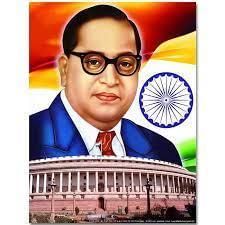
(iv) The set of guidelines in the Constitution for the government's welfare efforts.
Ans: Directive Principles of State Policy (DPSP)
The Directive Principles of State Policy (DPSP), outlined in Part IV of the Indian Constitution (Articles 36-51), provide a set of guidelines and principles for the government to promote the welfare of the people. While these principles are not legally enforceable, they serve as a moral and political commitment for the government to work towards achieving socioeconomic justice, equity, and other social objectives.
(v) The duty of parents or guardians mentioned in the Constitution.
Ans: To Provide Education to Their Children (Article 45)
Article 45 of the Indian Constitution emphasizes the duty of parents or guardians to provide education to their children. It is a directive principle that encourages the state to provide free and compulsory education for children up to the age of 14. This provision underscores the importance of education in the development of individuals and society.
Q4: Short Answer Questions.
(i) What is the significance of Republic Day in India?
Ans: Republic Day is celebrated on January 26th in India to honor the day when the Indian Constitution came into effect in 1950. It marks the transition of India from a British dominion to a sovereign republic.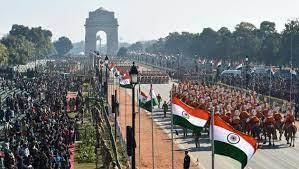
(ii) Who is regarded as the architect of the Indian Constitution?
Ans: Dr. B. R. Ambedkar is considered the chief architect of the Indian Constitution. He played a pivotal role in drafting the Constitution and ensuring that it reflected the principles of justice, equality, and democratic governance.
(iii) Explain the concept of Fundamental Rights.
Ans: Fundamental Rights are the basic rights granted to every citizen to ensure their well-being and protection. These rights are enforceable in a court of law and include rights to equality, freedom, and protection against exploitation.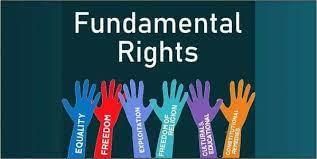
(iv) What are Directive Principles in the Indian Constitution?
Ans: Directive Principles are guidelines provided in the Indian Constitution for the government's policy-making and welfare initiatives. While not immediately enforceable in court, they aim to create a just and equitable society by addressing various social, economic, and political issues.
(v) Name one Fundamental Duty that citizens of India are expected to perform.
Ans: One Fundamental Duty of Indian citizens is to abide by the Constitution and respect its ideals. This duty ensures that citizens contribute to the nation's integrity and promote a sense of patriotism and allegiance to the country's principles.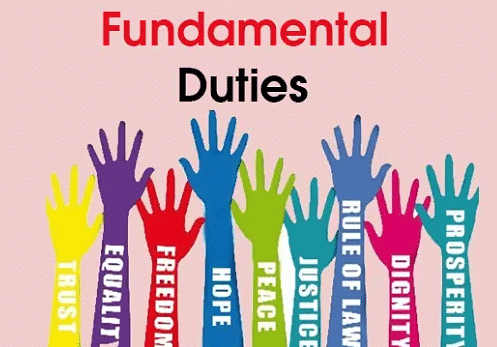
|
49 videos|177 docs|46 tests
|
FAQs on Our Rights and Duties - 2 Class 4 Worksheet SST
| 1. What are our rights and duties? |  |
| 2. Are our rights and duties the same for everyone? |  |
| 3. What happens if our rights are violated? |  |
| 4. Can our rights be limited or restricted? |  |
| 5. How can we fulfill our duties towards society? |  |
















